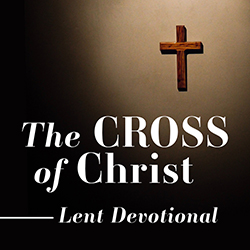Reading: The Cross of Christ, pages 31-38
31 And he began to teach them that the Son of Man must suffer many things and be rejected by the elders and the chief priests and the scribes and be killed, and after three days rise again. 32 And he said this plainly. And Peter took him aside and began to rebuke him. 33 But turning and seeing his disciples, he rebuked Peter and said, “Get behind me, Satan! For you are not setting your mind on the things of God, but on the things of man.” Mark 8.31-33
…Jesus specifically called his ‘hour’ the time of his ‘glorification’, which (as we shall see later) began with his death, and added that he could not ask to be delivered from it because this was the reason he had come into the world. Indeed, the paradox John records can hardly have been accidental, that the hour for which he had come into the world was the hour in which he left it. Mark makes matters yet more explicit by identifying his ‘hour’ with his ‘cup’. From the evidence supplied by the Gospel writers, what are we justified in saying about Jesus’ perspective on his own death? Beyond question he knew that it was going to happen-not in the sense that all of us know we will have to die one day, but in the sense that he would meet a violent, premature, yet purposive death. | Stott pg. 35
If Jesus knew all along His journey led to the cross, how should you reflect that in your life? What things become trivial in light of this?
Lord, thank you that Jesus lived a life focused on His purpose: saving a sinner like me. Help me to live in a way that reflects the priorities of God and not man. Show me the things that I should be willing to leave behind and the things I should be willing to carry in this life. Amen.

